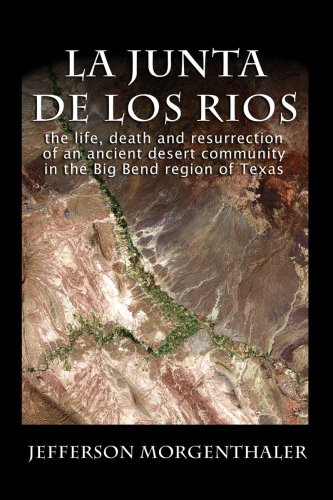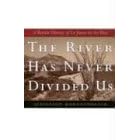 Notes From Texas: On Writing in the Lone Star State. Edited by W.C. Jameson. Fort Worth: Texas Christian University, 2008. Designed and with usual fine woodcuts of Barbara M. Whitehead. Dark maroon cloth on boards under an illustrated yellow jacket, with sun yellow endpapers, portrait photographs, indexed, 244 pages. $27.95, and a genuine bargain at that. ISBN 9780875653587 Notes From Texas: On Writing in the Lone Star State. Edited by W.C. Jameson. Fort Worth: Texas Christian University, 2008. Designed and with usual fine woodcuts of Barbara M. Whitehead. Dark maroon cloth on boards under an illustrated yellow jacket, with sun yellow endpapers, portrait photographs, indexed, 244 pages. $27.95, and a genuine bargain at that. ISBN 9780875653587
Okay. Here's what you wanted. You sit down and have a personal one-on-one with 14 successful, living, contemporary authors (and the editor as well) about their lives, childhoods, inspirations, literary influences (both native and ultrariverine), disappointments, and goals. W.C. Jamison, a native West Texan has done it for you and I'm right glad for it. First, let's list the authors in alphabetical order, like the chapters: Judy Alter, Robert Flynn, Don Graham, Rolando Hinojosa, Paulette Jiles, Elmer Kelton (now passed), Larry L. King, James Ward Lee, James Reasoner, Clay Reynolds, Joyce Gibson Roach, Red Steagall, Carlton Stowers, and Frances Vick. Whether they read Tarzan, the Texas old rocks, Shakespeare, or Vanity Fair; fought wars, avoided housework, drudged through writing classes, collected rejection slips, or scratched farmland; plied their trade in periodicals, books, theatrical joints or classrooms, Texas became home and a place of literary reference. Judy Alter used the Amon Carter Museum substantially to write her dissertation on the Western myth. Robert Flynn, a Baptist from Chillicothe, got his writing fingers crushed in an auto door as a child. Don Graham now teaches Dobie's old course. Rolando Hinojosa-Smith has 14 novels within his "Klail City Death Trip" series, and he writes because his family read, and read aloud to each other. Paulette Jiles find that writing is not a spectator sport. Elmer Kelton, bless his typewriter, knew what it was like when it didn't rain. Not a shy child, Larry King declared he'd become a "rich Famous Arthur." James Lee, with Matthew Arnold, wanders "between two worlds, one dead, / The other powerless to be born." Clay Reynolds pursues the ironic along with Shelley. Joyce Royce recounts the West Texas wisdom, "If rain occasionally comes, will drought be far behind?" Red Steagall listened to the "Lone Ranger" on the radio. Carlton Stowers continues his hunt for untold stories. Fran Vick is frank, "Texas has defined my whole life ….", but Fran also can see beyond the river. If a youngster wished to teach a sorta course in modern Texas letters, he could cut this volume up into a thousand little pieces, paste them on 5x8 index cards, arrange them chronologically, and start talking as inspired these authors' words. |
 Kameron Searle on his Texas History Page reviews Who is Mother Neff and Why is She a State Park? by Allan C. Kimball. It begins
Kameron Searle on his Texas History Page reviews Who is Mother Neff and Why is She a State Park? by Allan C. Kimball. It begins Larry McMurtry is interviewed for National Public Radio for almost 8 minutes about his installment of his Literary Life. The interview is available in print and audio. It begins:
Larry McMurtry is interviewed for National Public Radio for almost 8 minutes about his installment of his Literary Life. The interview is available in print and audio. It begins:  KIM PIERCE, Special Contributor to The Dallas Morning News, sprouts a book review entitled "Author Profiles Texas' Organic Farmers," and begins
KIM PIERCE, Special Contributor to The Dallas Morning News, sprouts a book review entitled "Author Profiles Texas' Organic Farmers," and begins


 Photo:
Photo:  The New West collects it favorite books for 2009 with some Texana in "Other States" section
The New West collects it favorite books for 2009 with some Texana in "Other States" section

 Elmer Kelton, Sandhills Boy:
Elmer Kelton, Sandhills Boy:
 Midian, Marshall & Me.
Midian, Marshall & Me.


 Texas
Texas
 The River Has Never Divided Us:
The River Has Never Divided Us: Waco
Waco
 The Texas Tribune is described by the Texas Community College Teachers Association:
The Texas Tribune is described by the Texas Community College Teachers Association: If you know what Roswell connotes, you'll enjoy this science ficiton. A review by NM Boliek of Roswell, Texas by L.Neil Smith, Rex F May, Scott Bieser and Jen Zachis at
If you know what Roswell connotes, you'll enjoy this science ficiton. A review by NM Boliek of Roswell, Texas by L.Neil Smith, Rex F May, Scott Bieser and Jen Zachis at  Mary Karr's third memoir, Lit: A Memoir is reviewed in New York Books at
Mary Karr's third memoir, Lit: A Memoir is reviewed in New York Books at

 Notes From
Notes From 
